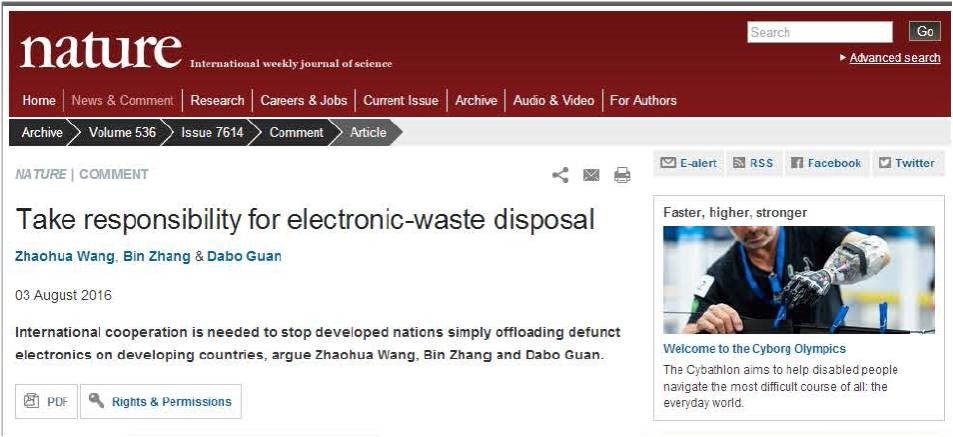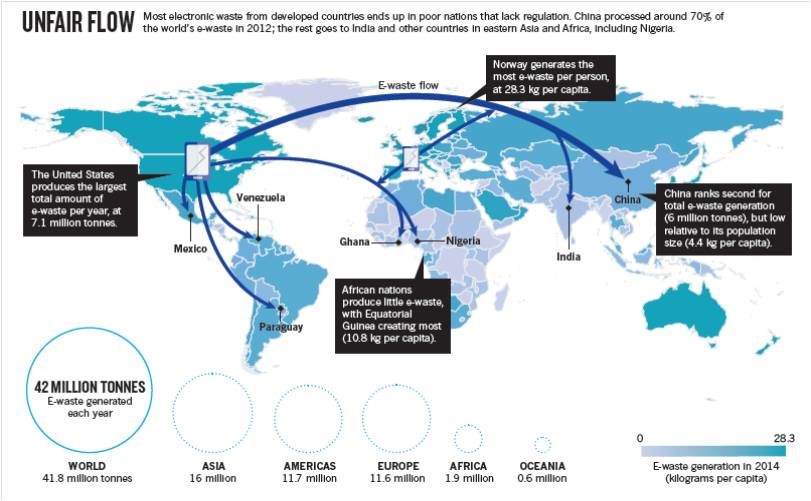Professor of BIT publishes article on Nature: Take Responsibility for Electronic-waste Disposal
Translator: News Agency of BIT Qin Siyao
Editor: News Center of BIT Zhao Lin

Electronic-waste disposal is an efficient way to realize resources renewing and reduction of environmental pollution. However, there exists a serious regional imbalance in the international electronic-waste disposal. Developed countries, especially in North America and Europe, produce large amount of e-waste per year. Most of their e-waste ends up in the developing world in Asia, Africa, Central and South America. For example, China processed about 70% of the world¡¯s e-waste in 2012. Limited by techniques and lax regulation in developing countries, most of e-waste can¡¯t get professional recycling and have brought about serious environmental and social problems. Thus, how to solve the imbalance of e-waste disposal and problems concerning it has become an important topic.
Based on the previous work, Professor Wang Zhaohua, Zhang Bin from Beijing Institute of Technology (BIT) and Professor Dabo Guan from University of East Anglia analyzed the imbalance of e-waste flow and disposal. Their research result, Take Responsibility for Electronic-waste Disposal was published on Nature. (Link:http://www.nature.com/news/take-responsibility-for-electronic-waste-disposal-1.20345) It is also the first time that Chinese scholars have discussed e-waste disposal on Nature.

Global e-waste flow
Using material flow analysis, they evaluated the generation and flow of global e-waste. Combining the principle of extended producers¡¯ responsibility and consumers¡¯ pays, they analyzed region discrepancy and put forward that a global approach to managing the volume and flow of e-waste is urgently needed. This requires: an international protocol on e-waste; funding for technology transfer; firmer national legislation on imports and exports; and greater awareness of the problem among consumers. This achievement provided a reference for responsibilities clarification as well as regional balance enhancement.
The research result was funded by General project 70773008, and Innovative Research Groups 71521002 of National Natural Science Foundation of China.

